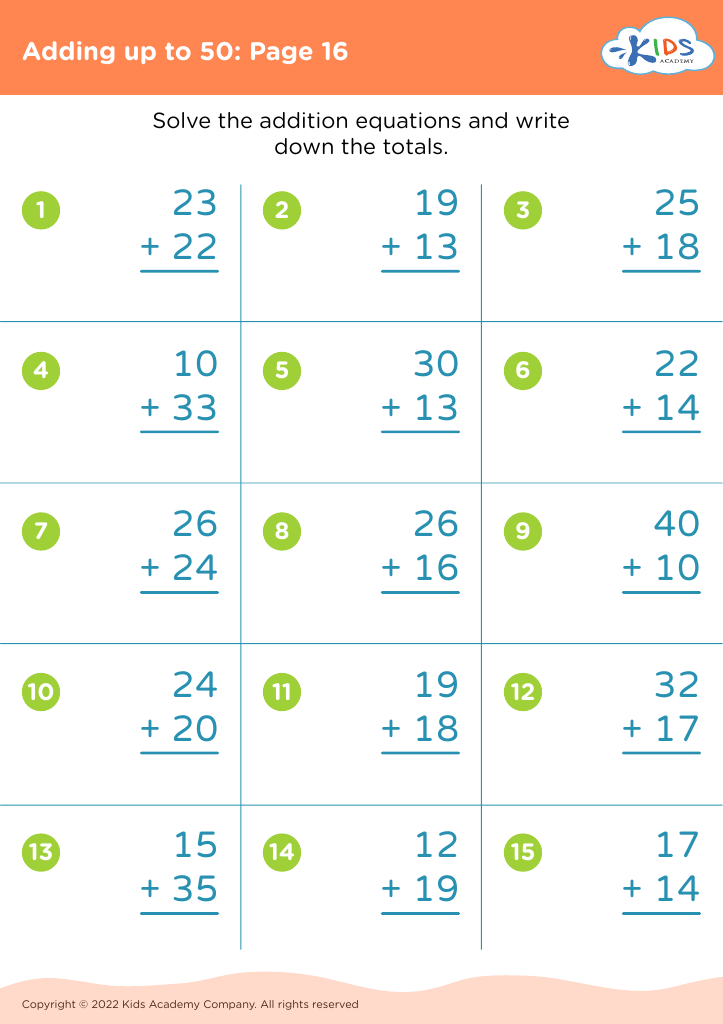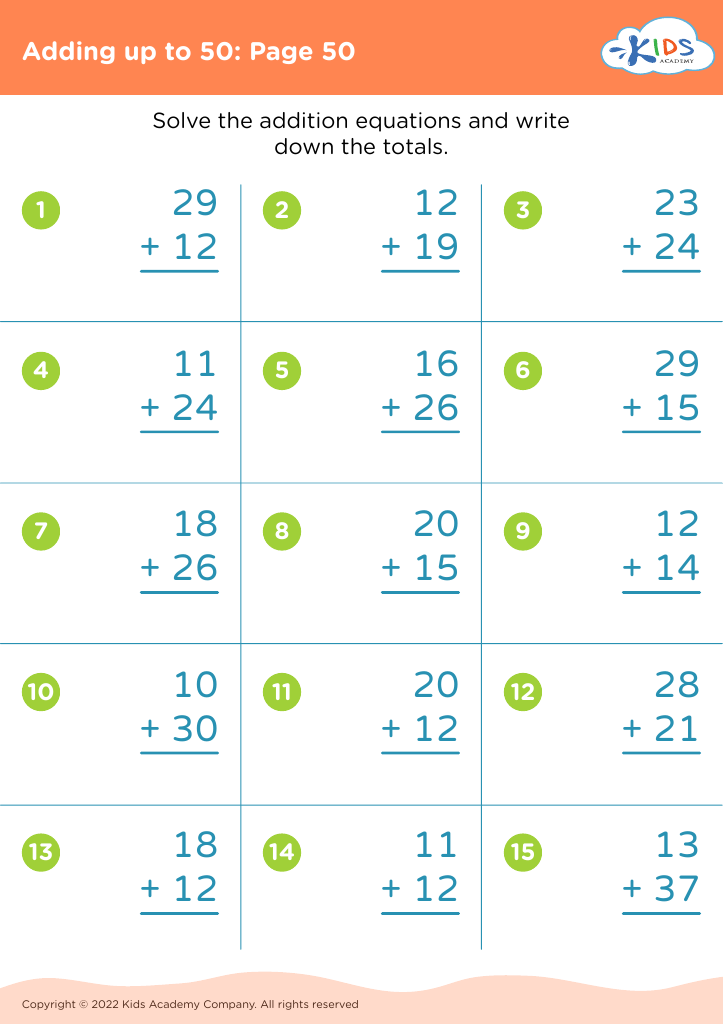Reading clocks Addition Worksheets for Ages 8-9
3 filtered results
-
From - To
Discover our engaging Reading Clocks Addition Worksheets tailored specifically for children aged 8-9! These worksheets help young learners enhance their time-telling skills while reinforcing their addition capabilities. With a fun variety of exercises, kids will practice reading analog clocks and solving addition problems involving time. Our colorful and interactive worksheets make learning exciting, ensuring your child develops both confidence and proficiency in mathematics. Perfect for classroom use or home practice, these resources are designed to fit seamlessly into any curriculum. Explore our collection now and watch your child excel in telling time while mastering addition!
Reading clocks and mastering addition are essential skills for children ages 8-9 that should attract the attention of parents and teachers alike. Understanding how to read a clock enhances children's ability to manage time effectively, facilitating independence in their daily activities and aiding in developing a sense of responsibility. Mastering this skill contributes significantly to their overall cognitive development, as it requires the integration of both visual and mathematical reasoning.
Moreover, addition serves as the foundation for more complex mathematical concepts and plays a crucial role in developing problem-solving skills. As children engage in age-appropriate addition exercises, they also improve their logical thinking and analytical abilities. This skill helps them not only in math but also in real-life situations, like budgeting their allowance or measuring ingredients for cooking.
Together, these skills prepare children for academic success and life skills that extend beyond formal education. Engaging parents in this learning process can create a supportive home environment where children practice clock reading and addition in meaningful ways. When parents and teachers prioritize these skills, they foster a love of learning and boost children's confidence as they grow into capable, independent thinkers.







.jpg)












